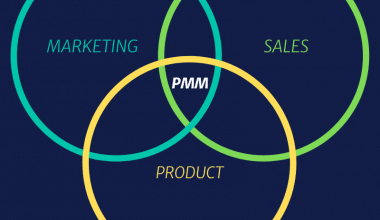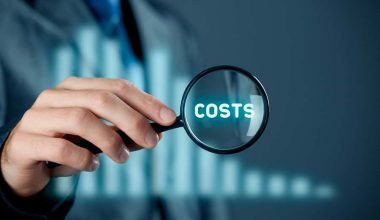Choosing the right platform for your organization can be difficult, not only because of the vast number of solutions on the market but also due to key considerations such as deployment options, customization, cost, scalability, and business value. There are numerous types of procurement software available to help companies tackle the procurement process with greater efficiency and productivity. However, in order to find the best procurement system for your funds, you must first understand your options and the benefits they offer. Hence, in this article, we will discuss the three types of procurement and the top 10 leading procurement software companies that are driving digitalization and global innovation.
What Is a Procurement Management System?
A procurement management system is the effective management of a company’s spending, which includes purchasing goods and services. This entails selecting high-quality products, services, and vendors within a set budget and timeframe. The primary goal of a procurement management system is to help a company source and acquire the best possible goods and services in order to meet business objectives.
If the procurement team does its job right, the business can save money and time by negotiating better terms and prices with its suppliers. This department is in charge of things like purchase orders, long-term contracts, and getting rid of properties that aren’t needed anymore. Also, the procurement division keeps a close eye on both the details of a project and the way public money is spent.
What Are the Three Types of Procurement Software?
There are three main types of procurement software, which include direct ordering, indirect procurement, and service procurement.
- Direct procurement: Direct procurement entails the purchase of raw materials, machinery, and wholesale goods that directly contribute to the end product of the company. Furthermore, procurement officers and contracted suppliers are the primary stakeholders in direct procurement processes.
- Indirect procurement: Indirect procurement implies purchasing items such as office supplies. These items have no direct impact on the company’s end product or bottom line, but they help with day-to-day operations. A small business may assign indirect procurement processes to office managers, whereas large corporations may hire a facilities management company to manage those purchases.
- Services procurement: Hiring temporary employees, leasing software, and bringing in short-term vendors to work at an event or seminar are all examples of services procurement.
The Best Procurement Software Companies
Below are the top 10 most prominent global companies in the procurement software space and what makes their solutions unique.
#1. Icertis
Icertis is a privately held software company for intelligent contract management that was founded in 2009. It provides its services in procurement so that the customer’s entire source-to-contract process can be streamlined. This will allow for quicker deals and lower risk.
The Icertis Contract Intelligence (ICI) platform has assisted procurement teams all over the world in increasing productivity and improving contractual governance, while also increasing supplier accountability and bottom line results.
#2. Basware
Basware was founded in 1985 and offers P2P, AP automation, e-invoicing, and eProcurement. Procurement can save money, increase productivity, and see where every dollar is going by using Baware to automate the purchase-to-pay (P2P) process. Basware also assists businesses in future-proofing their operations by eliminating the need for traditional, manual processes.
#3. Capgemini
Capgemini is a multinational information technology services and consulting firm founded in 1967. The company offers digital solutions to its procurement customers in order to optimize the function and drive frictionless and sustainable procurement.
Capgemini’s services assist in the development, implementation, and operation of a successful digital procurement strategy, as well as in driving compliance, productivity, transparency, and cost savings.
#4. Epicor Software
EPICOR Software has been a frontrunner in the business software market since its founding in 1972, focusing primarily on the manufacturing, supply chain, and procurement sectors.
It provides supplier relationship management (SRM) software to its procurement clients in order to streamline the entire purchasing process and be more strategic in their sourcing.
However, some of the services that EPICOR Software offers are sourcing, procurement, supplier enablement, catalog management, and cost savings.
#5. GEP Smart
Since its inception in 1999, GEP has become an industry leader by providing procurement and supply chain professionals for companies with a wide range of consulting, software, and managed service options.
One of GEP’s procurement services is GEP Smart, which is a world-leading S2P platform for both direct and indirect procurement. It is used by companies like Walgreens Boots Alliance’s procurement function. However, they assist customers in digitally transforming their end-to-end procurement operations by leveraging AI and cloud technologies.
GEP’s services include spending analysis, saving tracking, sourcing, contract management, supplier management, and procure-to-pay (P2P).
#6. IBM
IBM has been at the forefront of technological innovation for over a century. In terms of procurement, the company also assists those in the function. They do this by providing access to powerful data, insights, and emerging technologies to improve processes and generate more value.
Furthermore, IBM offers the following services: source-to-pay (S2P), digital procurement, invoice-to-pay, and analytics.
#7. JAGGAER
JAGGAER is a cloud-based business automation technology company that was founded in 1995. It provides its procurement customers with JAGGAER ONE, a complete procurement platform for intelligent and flexible spend management.
The solutions that JAGGAER provides its clients are among the best in the industry because they give their clients complete transparency into all of their spending activities and utilize cutting-edge analytics and insights.
#8. Coupa Software
Coupa Software, founded in 2006, is a leading provider of business spend management solutions. If you use Coupa Software, you’ll have access to a robust platform for managing your organization’s total spending.
However, different types of procurement software companies can benefit from its ease of use while remaining flexible in their spending management with its single platform. It contributes to unprecedented savings and insights that drive measurable results.
Coupa Procurement Software offers different types of services, such as eProcurement, invoicing, strategic sourcing, payments, supplier management, spend analysis, and supply chain planning.
#9. Oracle
Oracle is a multinational technology company that was founded in 1997. Procurement professionals can now access Oracle Fusion Cloud Procurement, an integrated source-to-settle suite. Customers can use the solution to automate their processes, build strategic sourcing capabilities, improve supplier relationships, and simplify the purchasing process.
As a result, the procurement department will experience fewer perils, better financial savings, and higher levels of profitability and productivity. It provides the following services: spend management, direct materials management, relationship management, strategic sourcing, contract lifecycle management, compliance, and supplier collaboration.
#10. SAP Ariba
As a pioneer in the industry since its inception in 1996, SAP Ariba has become an indispensable tool for companies worldwide. The company goes beyond basic procurement processes, using its innovations to remove barriers, connect all spend categories in a single location, and foster deeper, dynamic, and end-to-end collaboration.
“Bridging the gap between your teams and trading partners to securely share data, gain insights, and manage workflow over the Ariba Network for a more efficient procurement process and greater cost control.” SAP Ariba.
Furthermore, SAP provides a wide range of procurement solutions to its customers, including strategic sourcing, procurement, supplier management, direct spending, financial supply chain, spend management, and buyers.
What Are the 7 Stages of Procurement?
Every procurement process includes requirements determination, supplier research, value analysis, raising a purchase request, review, conversion to purchase order, contract administration, order monitoring/evaluation, three-way matching, payment fulfillment, and record keeping. The following are the seven critical stages in the procurement process:
#1. Purchase Requisition
A purchase requisition is a written or electronic document submitted by an internal user or customer to the procurement team requesting the procurement team’s assistance in meeting a specified need. It contains critical information needed to obtain the appropriate goods, services, or works.
#2. Requisition Review
The official start of the procurement process won’t happen until the purchase requisition is approved and checked against the budget. During the review stage, functional managers or department heads examine the requisition package to determine whether there is a genuine need for the requested goods or services, as well as whether the necessary funding is available.
Approved purchase requests become POs, while rejected requests are returned with reasons. All of this is manageable with simple purchase order software.
#3. Solicitation Procedure
Once a requisition is approved and purchase order (PO) is made, the procurement team will create an individual procurement plan and a solicitation process to go with it. The complexity of the requirement ultimately determines the scope of this individual solicitation plan.
After the spending plan has been finalized, the procurement team will send out multiple requests for quotation (RFQ) to potential vendors in order to collect and evaluate bids in order to select the best possible provider.
#4. Evaluation and Contracting
The procurement team will review and evaluate supplier quotations in collaboration with the evaluation committee to determine which supplier will be the best fit to fulfill the existing need.
After settling on a vendor, the next step is to sign or negotiate a contract before sending the purchase order to the chosen vendor. A legally binding contract is formed when a vendor accepts and acknowledges a purchase order.
#5. Order Management
The vendor provides the promised goods/services within the time frame specified. Following receipt, the purchaser inspects the order and notifies the vendor of any issues with the received items.
#6. Approval of Invoices and Resolution of Disputes
This is an important step in the procurement process, and having procurement software like Kissflow Procurement Cloud gives you an advantage over your competitors. Kissflow allows you to perform three-way matching between GRN, Supplier Invoice, and PO to ensure that you received the order correctly and that there are no discrepancies. When the three-way matching is finished, the invoice is approved and sent to payment processing.
#7. Keeping Records
Buyers keep a record of the payment process for bookkeeping and auditing purposes. All relevant documents, from purchase requests to approved invoices, are kept in one place.
What Are the Benefits of Procurement Management?
Consistent procurement management procedures in your workplace can lead to positive changes throughout your organization. Procurement management system has a positive impact on business in the following ways:
- Reliability: By implementing consistent procurement management policies, your internal team can become more dependable and consistent in sharing purchasing responsibilities.
- Financial Savings: Procurement management entails locating the most cost-effective resources possible, which results in significant budgetary savings.
- Time Management: When you have faith in the procurement management system and are able to automate key tasks, you use your time more wisely.
- Industry Compliance: Including industry compliance rules and regulations in your procurement management process ensures that your company and its partners all meet the basic operational requirements.
- Communication: Procurement management systems make it simpler for internal employees to talk about inventory, supply, and labor requirements.
What Is the Most Important Thing in Procurement?
According to Tecom executive director of procurement, Cory Thwaites, the main focus for procurement professionals should be on building and maintaining positive relationships.
“For me, relationships are the most important thing in procurement,” Thwaites said on a panel about talent management and development at the CIPS Middle East Conference in Dubai. There’s no point in doing the process if you don’t like dealing with suppliers and stakeholders. “
“If people don’t like you, they won’t want to work with you,” he continues, “so your focus should be on building relationships.” Don’t be the “procurement cops.” “Have policies and procedures, but be flexible and willing to break them.”
Conclusion
Choosing the right procurement management system will be beneficial to your company. I hope this article will guide you.
Procurement Management System FAQs
What are the four main roles of procurement?
- Assist with operational requirements.
- Efficiently and effectively manage the procurement process and supply base.
- Establish strong working relationships with other functional groups.
- Support the goals and objectives of the organization.
What is an example of procurement?
The act of obtaining something, particularly military supplies, is known as procurement. One example of procurement is getting enough guns to equip an army.
What are the functions of procurement management?
Procurement manager responsibilities
- Product and solution research
- Stock management.
- Procurement process optimization.
- Management of RFPs.
- ROI analysis
- Evaluation and selection of suppliers
- Management of risks and compliance.
- Contract negotiation.
Related Articles
- REQUISITION NUMBER: Definition & How it Works
- Project Procurement Management: Detailed Guide To The Procurement Processes
- STRATEGIC SOURCING PROCESS: Detailed Steps to Strategic sourcing
- Value Chain Analysis: Steps to value Chain Analysis






